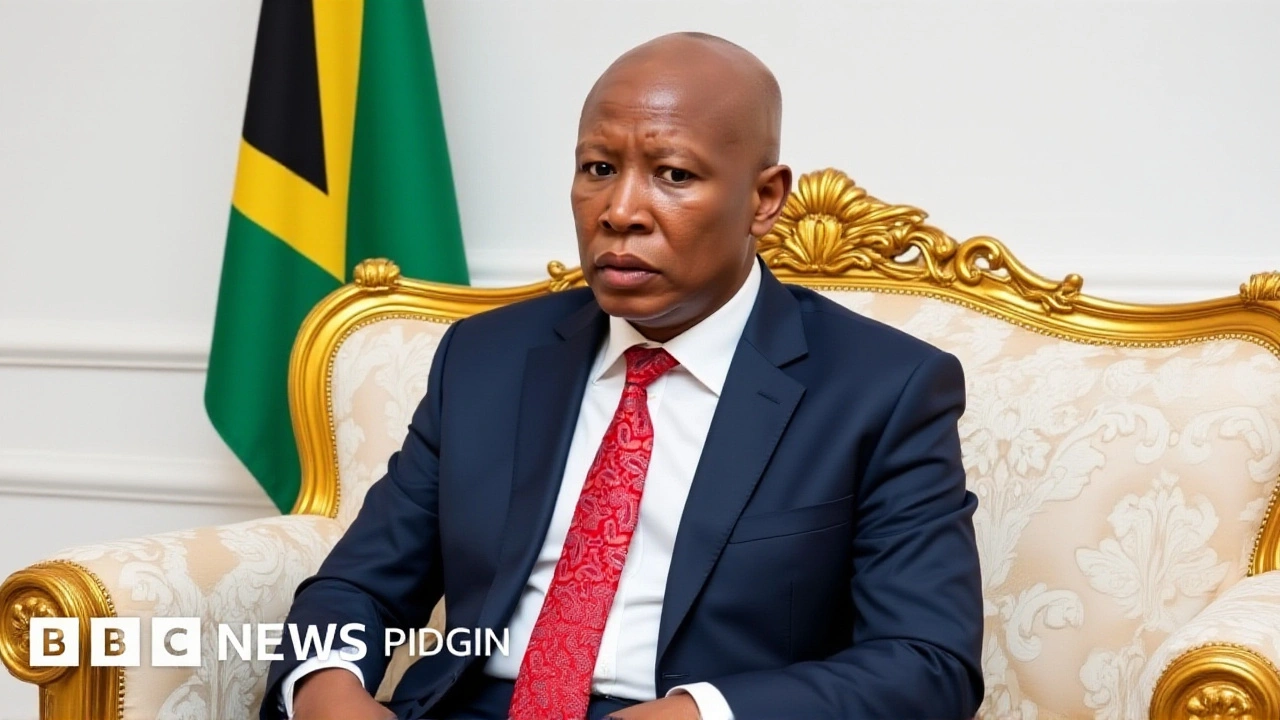Julius Malema – South Africa’s firebrand politician
When talking about Julius Malema, the outspoken leader of the Economic Freedom Fighters who champions radical land reform and youth employment. Also known as the ‘MF’, he dominates headlines from Parliament to the streets, shaping the conversation around inequality, protest and policy.
Why the Economic Freedom Fighters matter
The Economic Freedom Fighters, a left‑leaning party founded in 2013 that pushes for nationalisation of mines and a more aggressive land‑expropriation plan is the vehicle through which Malema pushes his agenda. The EFF’s rallies often turn into flashpoints for youth unrest, and their demand for free education directly ties into the government’s grant programmes. In practice, the party’s presence fuels debates on wealth redistribution, while also influencing how social grants are framed in the media.
South Africa’s social grants, cash‑based safety‑net programmes like the old‑age pension, disability support and the youth SRD grant sit at the heart of the country’s poverty‑alleviation strategy. Recent announcements about increased pension amounts and delayed SRD payments have sparked public outcry, especially among the youth that the EFF claims to represent. The grant system’s timing and eligibility criteria become talking points in Malema’s speeches, linking grassroots financial relief to broader calls for systemic change.
Another hot button that Malema often references is xenophobia, the hostility toward foreign nationals that flares up in South African townships and fuels violent attacks. The phenomenon threatens national cohesion, which the Minister of Arts and Culture has labelled a ‘nation‑building barrier’. Malema’s rallies sometimes echo those concerns, positioning the EFF as a defender of local jobs while simultaneously courting international criticism. The link between xenophobic incidents and policy debates shows how social tension shapes the political landscape.
Jacob Zuma’s legacy also looms large over current discussions. The Zuma nepotism scandal, the 2014 appointment of his daughter Thuthukile as a chief of staff that sparked investigations into corruption and favouritism set a precedent that Malema frequently cites when condemning elite privilege. The fallout from that case fed public anger, leading to protests like the Diepkloof highway blockades demanding better services. These events illustrate how past governance issues continue to fuel present‑day activism.
Putting these pieces together creates a clear picture: Julius Malema influences South African politics by marrying the EFF’s radical platform with real‑world concerns about social grants, xenophobia and historic corruption. The synergy between his rhetoric and policy debates drives nationwide conversations, from Parliament chambers to township streets. Readers will find that the articles below dive deep into each of these strands, offering updates on grant dates, analyses of xenophobic barriers, and insights into how protest movements evolve.
Below, you’ll discover a curated mix of news pieces that track the ripple effects of Malema’s agenda across the nation. Whether you’re tracking grant announcements, watching the fallout from xenophobic incidents, or following the legacy of past scandals, the collection gives a front‑row seat to the dynamic forces shaping South Africa today.

EFF to Appeal August 2025 Hate Speech Conviction of Julius Malema
EFF vows to appeal Julius Malema's August 2025 hate‑speech conviction, a case that could reshape South Africa's balance between free political speech and anti‑hate laws.